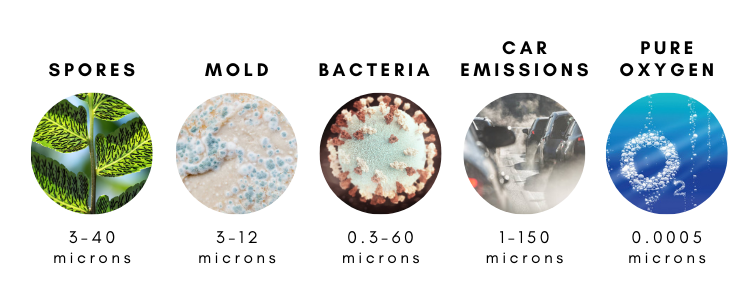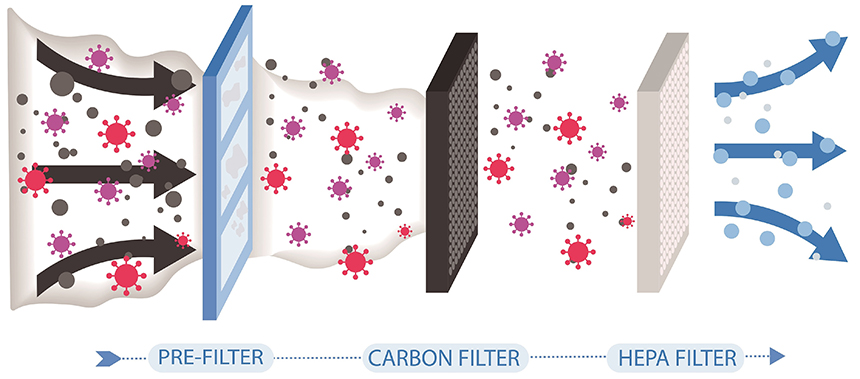
When it's time to shop for your next vacuum cleaner, humidifier, air purifier, furnace or ventilation system, you will need to choose a type of air filter for your unit. For its obvious great qualities, we recommend that you always use HEPA filters.

A bit of history
HEPA filters were invented by the United States Atomic Energy Commission (AEC) in the 1950s, during the Second World War. They needed a technology capable of removing small radioactive dust particles from the air.
Over the past decade, HEPA technology air purifiers have been used to clean the interiors of homes, hospitals and operating rooms across the country. The Environmental Protection Agency (EPA) has recognized the HEPA filter as the best filter for cleaning the air.
What is HEPA filtration?
HEPA stands for High Efficiency Particulate Air. HEPA filtration guarantees a high quality filtration of air and dirt, bacteria, pollen and any other particles in the air larger than 0.3 micron. To receive HEPA certification, the filter must remove 99.97% of 0.3 micron particles.
To give you an idea of what a micron is : 

HEPA filters in operating rooms, hospitals... and at home!
HEPA filters can be found in hospitals, laboratories and pharmaceutical companies, among others, where air quality must be impeccable.
According to Fantec, ''The more a house is insulated, the more it prevents not only the outside air from entering inside, but also from evacuating pollutants and allergens from carpets, pets, mold, plants, cooking and tobacco smoke outside. Your family can breathe air five times more polluted than the air outside''.
How does it work?
Simply put, HEPA filters trap air contaminants in a complex network of fibres. Contrary to popular belief, not all HEPA filters are the same. There are significant differences in composition and usage.
The HEPA filter stops particles in three different ways:
- The particles simply enter the fiber and stick to it;
- When particles are within a diameter of the filter fiber, instead of passing through the fiber, they are attracted and stick to it.
- When a very small particle (about 0.1 micron) passes through the filter, it collides with other molecules and gets stuck back into the fiber.
In some cases, the use of a HEPA filter is more necessary. If you fall into one of the following categories, we strongly recommend HEPA filtration:

New parents
HEPA filters are very useful for new parents because they help protect the newborn from immune and respiratory problems.

Smokers
HEPA filters are effective in removing smoke particles, contaminants and other associated odors.

Pet owners
Pet owners can also benefit from the use of HEPA filters because they help remove the flakes and hairs circulating in the air that cause allergies.

Asthmatic
HEPA filters are also used by asthma sufferers to keep indoor air clean.

.png)
